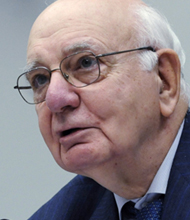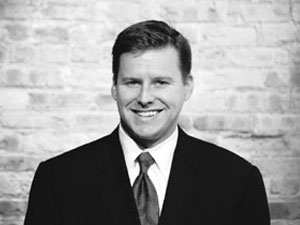Minneapolis Federal Reserve economist
Toby Madden turns his myth busters series toward the issue of immigration. Click here to read the article.
You often hear this myth:
"Immigration is bad for native-born workers”Madden responds: "
...this myth stems from the idea that the number of jobs in America is fixed, and every job taken by an immigrant reduces the total number of available jobs, always to the detriment of native-born workers. This overlooks some valuable economic contributions from immigration on both the supply of and demand for labor. That’s not to say immigration has no downside. Setting aside the controversy of legal versus illegal immigration, both economic theory and practical evidence suggest that immigration does affect native-born workers. When an individual immigrates to the United States, native-born workers face additional competition for available jobs and may find it harder to get a job. The increase in regional labor may also drive wages down by a marginal amount.
Most immigrants take low-skill jobs; thus, the burden of displacement and lower wages falls disproportionately on low-skilled, minimally educated workers. However, most economists find very modest impacts on wage levels: A 2008 National Bureau of Economic Research study estimated that the positive immigration effect on wages of U.S.-born workers with at least a high school degree offsets the small negative effect on wages of U.S.-born workers with no high school degree.
Economists also see supply-side benefits from immigration. For starters, increased labor competition, and any dampening effects on compensation, helps employers spend less time and money filling labor needs. Increased labor competition also provides incentives for native-born workers to improve their skills through additional education or other training. Such an outcome is good for native workers, who should see their wages increase, as well as employers, who benefit from a higher-skilled workforce.
Equally important, and often overlooked by opponents in this debate, are the positive, demand-side effects of immigration. Immigrants spend money on food, shelter, and other goods and services. This spending raises the overall level of economic activity in the community, leading employers to create more jobs in response to increased demand. There is some empirical evidence that immigrants create more jobs than they fill—thereby increasing overall employment.
Meanwhile, changes stemming from increased demand accrue to a wide swath of participants in the economy. In 1997 the National Research Council estimated that immigrant labor conferred net benefits of anywhere from $1 billion to $10 billion per year on the native-born population. Immigrant workers contribute taxes to governments at all levels. Studies suggest that the majority of foreign-born laborers will generate more in tax revenue than they generate in public costs through the use of social programs.
Part of the net public benefit stems from more taxpayers shouldering the cost of government, whether it be for interest payments on national debt or for public goods and services; without immigrants, who generate most of the population growth in the United States today, costs per taxpayer would be higher. However, costs may be concentrated in the short run and borne by specific local governments. For example, education expenses are shouldered by local school districts with high numbers of immigrants, while benefits (including returns from that education) are often more dispersed over time and geography."

















![[dilbert041609.gif]](https://blogger.googleusercontent.com/img/b/R29vZ2xl/AVvXsEi8beVWfQt-cviSG9T7q-f3lVhRhXcvI1I55bv716dsJ2cz2mj51ZTIihwpVPFQqyet11IAyg5cVGK_ChKjNio6IMnOjkVVqmpEXvUFk6gGi60xwin9ZaBN2dh43bXo4qK-8UEcsiacw-c/s1600/dilbert041609.gif)





![[Commentary]](http://s.wsj.net/public/resources/images/OB-DC407_oj_bec_DV_20090209220117.jpg)

![[Commentary]](http://s.wsj.net/public/resources/images/ED-AI967_Malkie_D_20090204172834.jpg)




